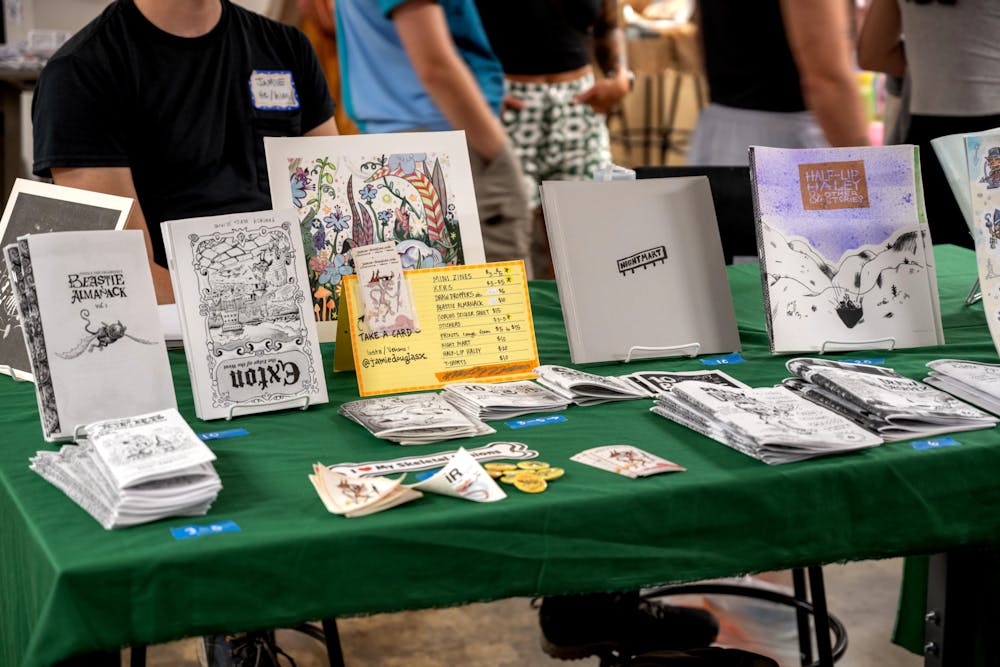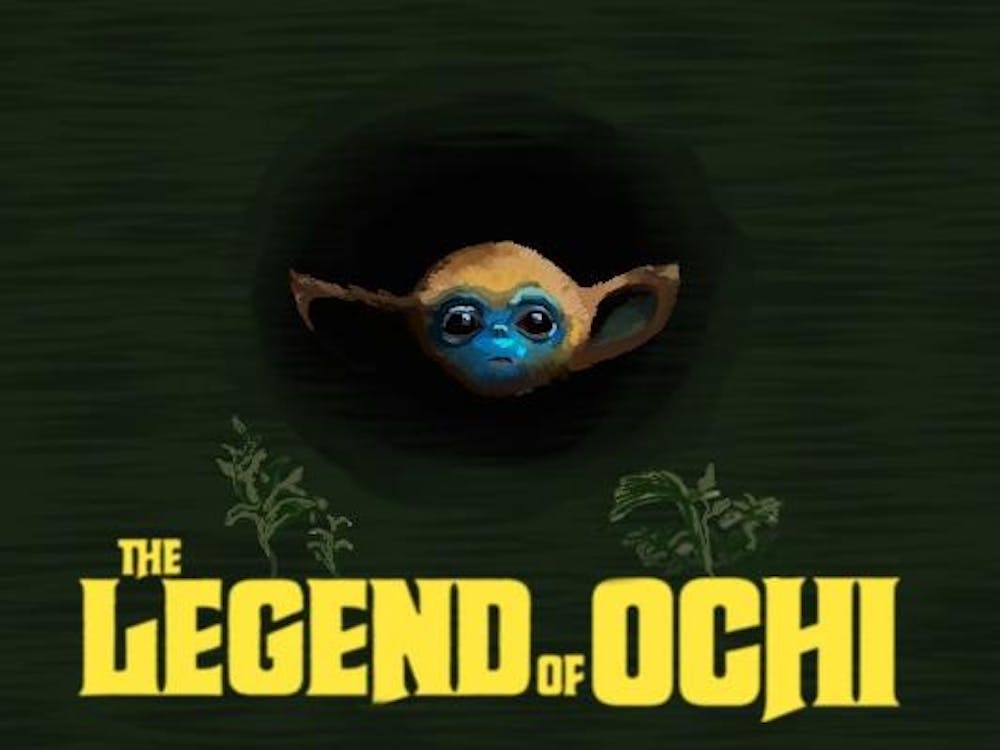On a warm Saturday in a bright, low-ceilinged space beneath the Downtown Mall, a group of local creatives convened for the first-ever Charlottesville Zine Fest. The organization had been building to this event for over a year — connecting artists, consolidating resources, staging workshops — as part of an ongoing mission to strengthen and showcase Charlottesville’s growing network of zine-makers.
For the benefit of the unenlightened, the Zine Fest website defines a zine as a small-circulation publication which is often handmade and photocopied for the purposes of distribution. One person’s zine might include prose, another’s poetry or photography — the appeal of the medium lies in its openness.
Liz Mayer, co-founder of Charlottesville Zine Fest, emphasized the accessibility of zine-making, and how this accessibility empowers artists to express themselves freely.
“There’s no gatekeeper, there’s no barrier,” said Mayer. “You don’t have to go through an editor or a publisher. You can put out exactly what you want to put out in whatever way you can.”
According to Mayer, Zine Fest represents over a year of collaboration between herself and other local artists and arts organizations. After conceiving of an event that would both help artists to circulate their work and invite the community to learn more about this underappreciated medium, Mayer said that she — along with a group of local zine-makers — began by setting up a series of workshops over the summer.
Six artists spent 10 days at Blue Ridge Juvenile Detention teaching kids how to make their own zines in June. In July, multimedia artist and advocate Jess Walters spoke on the political power of zines through her Zines for Change workshop, and artist Mary Lamb partnered with writer and artist Sarah Lawson to put on a workshop focusing on collage zine-making.
As this was happening, Mayer and her collaborators were continuing to plan their big event. With the aid of a $2,800 New City Arts Initiative SOUP grant, they were able to secure locations for several of their workshops, as well as buy supplies, copy zines and otherwise gear up for the festival, hosted Sept. 9.
On the day of, 26 vendors and around 300 visitors came together in The Underground from noon to four p.m. to participate in Charlottesville’s exciting zine scene.
One vendor, Raven Mack, said that he had been making zines for 30 years. He brought issues of his Southern Gothic Futurist zine to Charlottesville Zine Fest.
“Prose, poetry, stories,” said Mack, describing the content of his zine. “It’s my personal mythology… my whole thing is Southern Gothic Futurism, so it’s like, what comes after the end times, what is after the end?”
Outside of zine-making, Mack is a multimedia writer and hosts haiku slams at the Twisted Branch Tea Bazaar.
Jay Simple, executive director of The Bridge Progressive Arts Initiative, shared zines affiliated with The Photographer’s Green Book, a national resource and publication focusing on inclusion, diversity, equity and advocacy in the field of photography — motivated, in part, by the death of George Floyd.
“We were really thinking about how these moments and actions can galvanize our communities, seeing what was happening in the arts and in a lot of places, looking for equity in different ways,” Simple said. “We started the Green Book as an avenue to try to enact that change in the visual medium.”
While the Green Book zines represent parts of a national whole, reporter and DJ Erin O’Hare zoomed in on Charlottesville in the first volume of “Under the Table and Screaming,” a zine she created for local radio station WTJU.
“I interviewed more than 50 people for the project,” O’Hare said. “I also have two radio shows on WTJU, I play in bands and book shows, so I have a lot of knowledge and love for local music.”
O’Hare writes for multiple local publications, including Charlottesville Tomorrow, and touched on the role of print in an ever more digital media landscape.
“I think it’s so important to have a print product, because you can engage with it in a very different way,” O’Hare said. “You can keep it around, you can refer back to it. It's a lot harder to do that when it's digital.”
To many of the event’s vendors and organizers, the power of print links to the power of zine-making and zine distribution.
“It allows people an avenue to have a voice and an opinion and let their own ideas be out,” Simple said. “People have historically used zines or a paper medium to get their ideas out, whether that was Riot Grrrls, or the Black Panthers.”
Following the first Charlottesville Zine Fest, Mayer has high hopes for the future.
“We definitely want to do it annually, and we want to keep going with the workshops,” Mayer said.
She recommended that those interested in upcoming Charlottesville Zine Fest events follow the organization on social media, and noted her dedication to building connections between community members and creating opportunities for artists to share their work.
“Making art can be such a solitary endeavor,” said Mayer. “Something like this, it's like a little book you made yourself and you photocopied, like, 30 copies or something, just to be able to get the 30 copies to other people — I think that’s very meaningful.”







